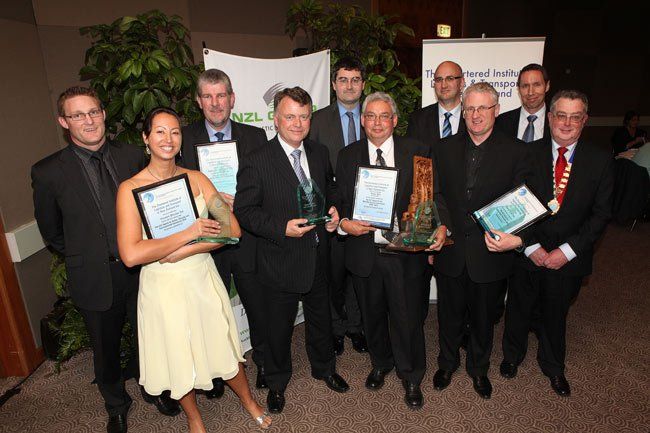Our Products
Latest News
NZ HortBin hits NZ shores
Click here to read more..
Viscount Plastics cleans up at the Pampito Awards
Click here to read more..
Viscount Plastics is the proud winner of the Chartered Institute of Logistics and Transport's prestigious "Safety, Security and Environmental Innovation" award for 2010.
Click here to read more...
Proud winner of “Safety, Security and Environmental Innovation Award”
Viscount Plastics is the proud winner of the Chartered Institute of Logistics and Transport’s prestigious “Safety, Security and Environmental Innovation” award for 2010.
We are particularly proud of the fact that our win was directly related to the innovation and success we have been able to achieve working with Foodstuffs Wellington, KFC and Inghams, while implementing advanced Returnable Transit Packaging (RTP) - multi-trip, reusable plastic crates, bins, trays and pallets - increasingly replacing one-trip cardboard transit packaging by environmentally responsible companies.
The Chartered Institute of Logistics and Transport criteria
Viscount earned the judges’ favour for “cost-effective innovation in safety devices, systems, procedures and regulations including: care of the environment and bio-security in any aspect of the New Zealand logistics, transport or supply chain sectors involving the movement of people and freight”.
The recognition from the Chartered Institute is highly significant and adds credence to ‘first-of-its-kind’, international research which demonstrated that the product carbon footprint (PCF) of multiple-use, plastic containers had a far lesser carbon footprint than ‘one-off-usage’, cardboard cartons.
Product carbon footprint (PCF) is an international measurement criterion for greenhouse gas emissions over a product’s life-cycle and its impact on climate change.
Carbon footprint <70% less than cardboard cartons
As noted in our nomination for the award: based on a usable life of 92 return trips over 5 years, plastic’s carbon footprint is less than 30 CO2e kg per unit. Using the same measuring criteria, cardboard’s carbon footprint is around 70 CO2e kg per unit – giving plastic RTP a footprint close to 70% less than single-trip (one-off-usage) cardboard cartons.
Environmentally sustainable
Plastic can no longer be dismissed as not being environmentally sustainable and is now recognised as a durable product, able to take significant punishment in a variety of applications. And, at the end of its service life, a heavy-duty plastic product can be re-ground for re-manufacture into further plastic products.
KFC and Inghams
“220 fewer trucking movements annually.”
Viscount Plastics were engaged as a packaging consultant and solution provider to KFC and Inghams.
As a result, they now use deep-nesting Returnable Transit Packaging (RTP), which are cost-comparable with one-way cardboard, while satisfying key objectives of the ‘New Zealand Packaging Accord 2004’.
This was strategically important because KFC’s worldwide policy specifies returnable plastic crates over one-way cardboard. However, New Zealand presented a challenge, since nationwide closed-loop distribution has the cost hurdle of Cook Strait crossings.
Simultaneously, the Packaging Accord calls for a reduction in the environmental impact of packaging.
Working together
So we had to develop returnable plastic crates which would deliver cost efficiencies all along the supply chain, but particularly by significantly reducing the number of transport movements when the crates are empty.
Collaboratively, we developed a deep-nesting, swing-bar crate which not only outperforms the previous supplier’s 32 litre crate, but also presents New Zealand with a cost-comparable alternative to one-way cardboard for processed and manufactured goods distribution.
Featured gains
Although significantly smaller than the previous supplier’s 32 litre crate, the new 23 litre crate carries the same 16kg product weight. That’s more crates per pallet and the equivalent of 9 litres of fresh air per crate removed from the supply chain.
Our special swing-bar gets most of the credit here by allowing full-capacity filling, without the risk of contents’ damage.
Ribbed panels on the crate ends reduce the contact area for self-adhesive labels, enabling auto-washer systems to achieve complete removal - a hygiene plus for crates used on food processing lines.
Positive Impact
KFC and Inghams report “high levels of satisfaction with the new crate”. In KFC outlets it achieves a 25% increase in product stored in chillers. Deep-nesting also makes more efficient use of available storage space when empty.


